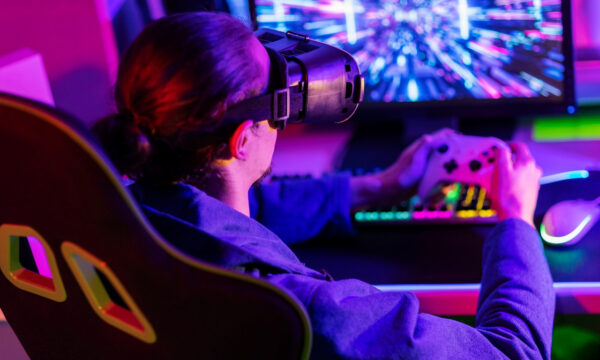How crypto might change cinema

The film industry and its output have long been shaped by its financing models, whether through major studio backing or private investments. However, these traditional avenues are increasingly recognised as opaque and inaccessible, while new alternatives continue to emerge.
The growth of blockchain technology and cryptocurrency signals a potential radical shift. The impact of these technologies has already been demonstrated in sectors such as video games and the online instant casino industry.
The blockchain blueprint
At its core, blockchain is just a decentralised ledger that’s open to all. It’s somewhat of a contradiction to the notorious “Hollywood accounting” that has led to disputes over profit-sharing for decades.
This technology uses smart contracts, which could become self-executing agreements to automate revenue distribution for stakeholders. It’s not just fairer, but it can democratise funding and make it appealing to outsiders, thus bringing in more funding.
This process of tokenisation means that filmmakers can sell digital tokens representing ownership or a share of future profits much more easily. This pool of investors broadens, particularly across country borders, but it also boosts liquidity.
Projects like The Quiet Maid, the first European film funded by the sale of NFTs, show that the new model of community-driven financing is possible in practice, not just in theory.
The volatility issue
While blockchain provides the structural foundation, the use of cryptocurrencies for direct investment does have its own risks. The risk is that, ultimately, people want investments more than they want crypto for the sake of it. Yet, not everybody has an appetite for the risk of coin devaluation during the project.
This can also complicate budget planning or additional rounds of raising money for the project. Of course, stablecoins are one solution, but they often have concerns of their own, like not truly having enough reserves.
While regulation is improving, investors are often concerned about fraud and hacks. This is something that will mature over time, it’s why the transition to crypto financing is a slow process, not an overnight adoption.
Adoption and a hybrid future
Early experiments, like with the NFT-based distribution of the 2021 film Zero Contact, have yet to spark an industry-wide transformation. Though, the popularity of crypto itself as a cultural zeitgeist is promoted in some cinema and its storylines, which helps.
Hybrid models may well be a middle ground that uses blockchain elements to supplement traditional financing. Major studios are cautiously experimenting with NFTs for marketing and collectibles too, while independent filmmakers like Julie Pacino, who funded her debut feature through NFT sales, are the primary adopters of tokenised funding for projects that struggle to secure conventional backing. Platforms like Filmio and Moviebloc are creating decentralised distribution channels, but their impact remains limited until major industry players fully embrace the technology.
A new reel of possibilities
Whether or not crypto takes Hollywood by storm is up for debate, but in independent filmmaking, it is likely to grow as an alternative financing option. As demonstrated in iGaming, eSports, concert ticketing, and many other areas of pop culture, crypto is becoming normalised as a means to pay and invest.
The editorial unit

























Facebook
Twitter
Instagram
YouTube
RSS